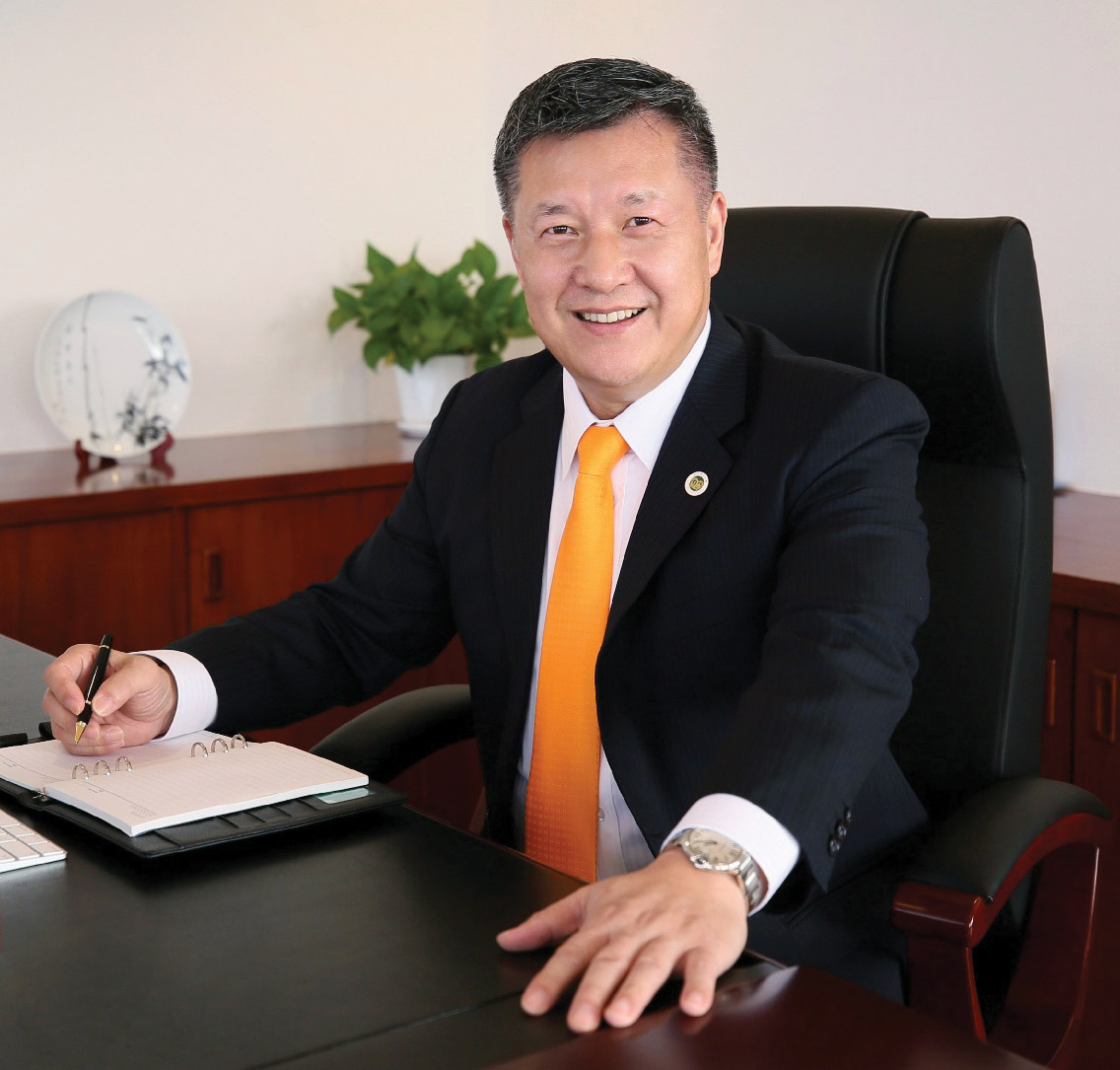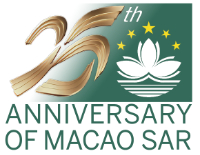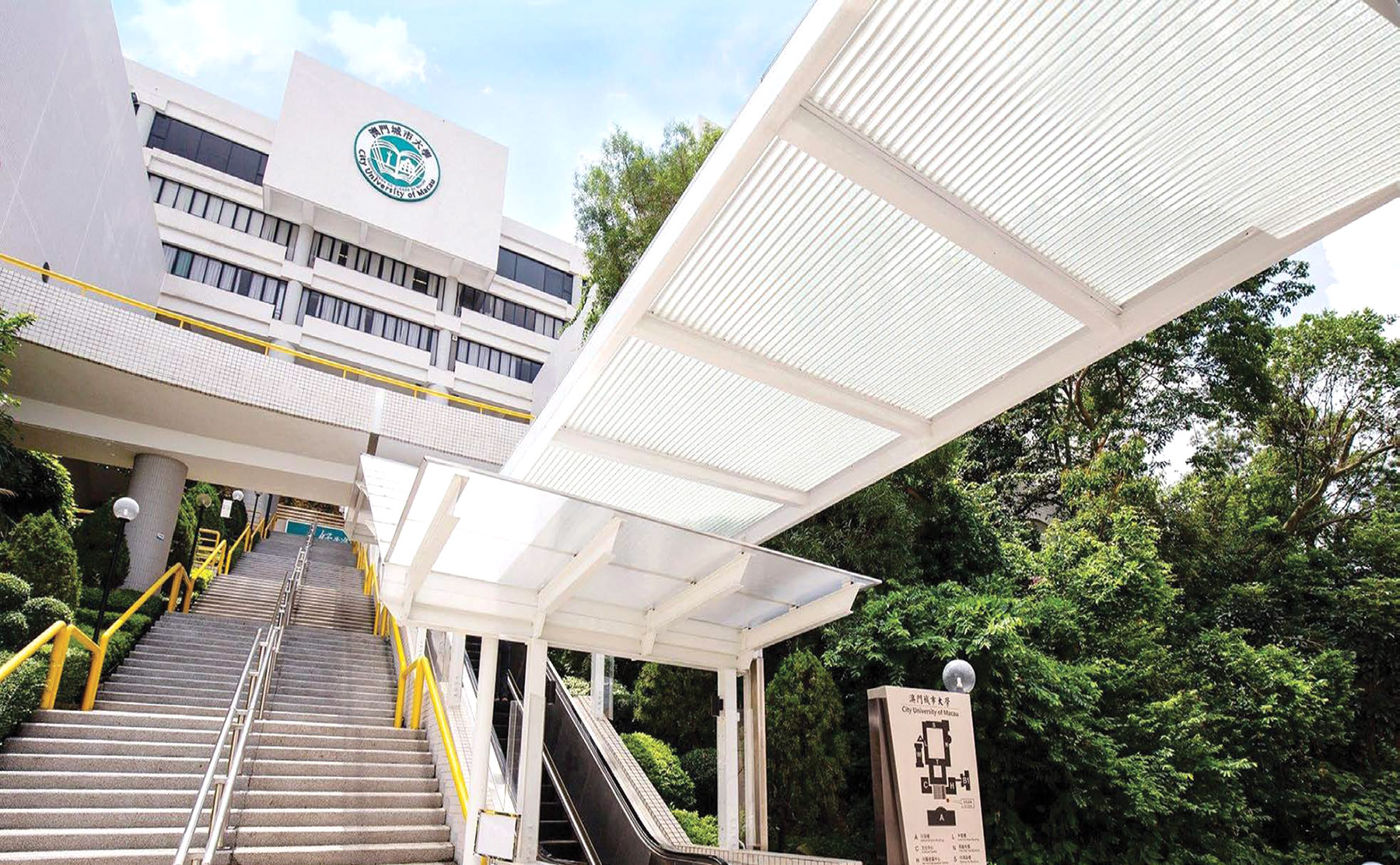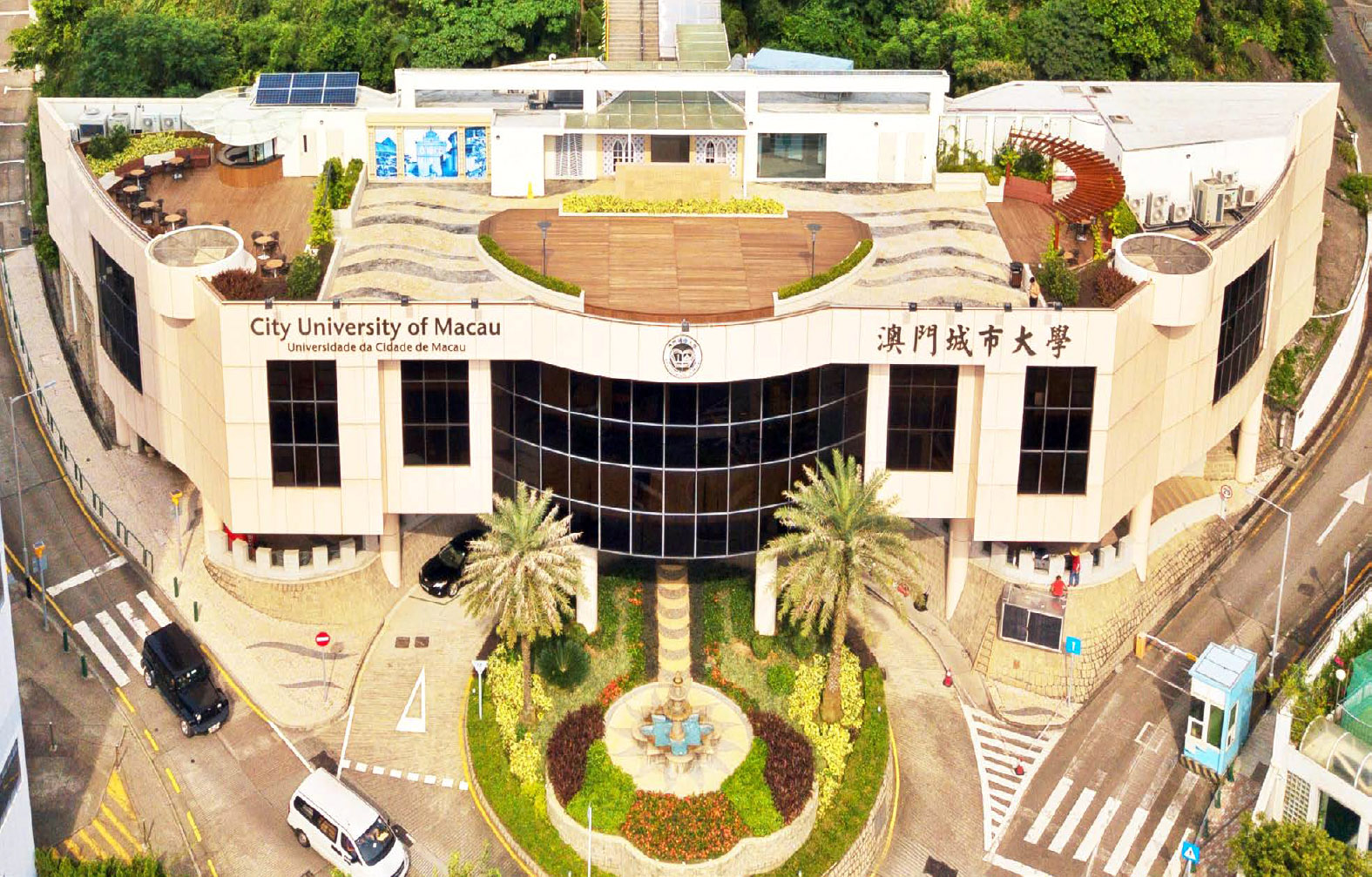SAR sees a bright future for higher education, capitalizing on the “one country, two systems” framework, appropriate economic diversification, and making the city a favorable place for higher studies for students. CityU Macao Rector Liu Jun talks to Wu Kunling.

Drawing on the strengths of the “one country, two systems” principle, Macao stands poised to be a world-class talent exchange hub with higher education as a glistening hallmark.
 That’s the view of internationally renowned educator and scholar, Liu Jun — rector of the City University of Macau — as the special administrative region prepares to commemorate the 25th anniversary of the city’s return to the motherland.
That’s the view of internationally renowned educator and scholar, Liu Jun — rector of the City University of Macau — as the special administrative region prepares to commemorate the 25th anniversary of the city’s return to the motherland.
In an exclusive interview with China Daily, Liu says he sees the SAR becoming a glamorous talent base in another quarter of a century — a place that not only nurtures professionals, but also serves as a platform for international talent exchange and collaboration.
By then, Liu envisages, a new education model — a “university of the future” — would have been established, granting students unparalleled freedom to choose their courses and fields, guided by global experts and empowered by advanced technology, to pursue knowledge and their dreams.
READ MORE: President Xi's visit seen as beacon for education in Macao
To realize this vision, along with maximizing Macao’s inherent strengths, the education sector should make full use of its connections with neighboring cities on the Chinese mainland, grasp the opportunities created by the SAR’s economic diversification, and actively embrace technology and interdisciplinary collaboration, he says.
Calling the city’s limited space a key constraint in developing institutions of higher learning, Liu says there is a pressing need to leverage the options offered by the integrated progress of the nine mainland cities in the Guangdong-Hong Kong-Macao Greater Bay Area, especially the development of the Guangdong-Macao In-Depth Cooperation Zone on Zhuhai’s Hengqin Island.
He says he hopes all of Macao’s universities can set up a joint institution on Hengqin that allows mainland high school graduates to take general education courses covering liberal studies like languages, culture, humanities, and artificial intelligence for the first two years.

In the third and fourth years, based on their strengths and preferences, students could join one of Macao’s 10 universities for further studies. In this respect, Hengqin could become more dynamic with increased educational activities, and the city’s education sector could also take in more students, laying a solid foundation for future development.
Additionally, a vast communication network exists between the nation and countries engaged in the Belt and Road Initiative, especially the 10 member states of the Association of Southeast Asian Nations that stand as a crucial resource for Macao’s educational development.
In Liu’s view, there is a growing demand among students from these nations for study abroad. At CityU Macau, full scholarships are granted to exceptional students from these nations to pursue further studies in the city, including 30 high school students from Malaysia who are set to enroll next year.
Moreover, Macao could serve as an attractive option for students from Portuguese-speaking nations like Brazil and East Timor. The rector believes that even brief exchanges, apart from students taking the traditional four-year degrees, will enable them to take their experiences in Macao back to their homelands, generating further interest in Macao among students.
With the nation’s unwavering support, Macao is vigorously moving towards economic diversification that would create fresh momentum for higher education, says Liu.
Beyond its traditional gaming industry, Macao is fostering growth in emerging fields with unprecedented vigor, including technology, finance, biomedicine and exhibitions. The shift will not only allocate more resources to education, but also spur increased academic exchanges, presenting a vital opportunity for students aiming to pursue careers in these evolving industries.
Liu believes the Macao SAR government could enact policies regarding visas and other aspects to help exceptional graduates stay and work in the city, significantly providing a major boost for education.
With such a multitude of favorable external conditions, Liu is confident in the future development of education, especially given Macao’s inherent advantages — its multicultural environment and strong international connections under the “one country, two systems” policy.
As a hub where scholars and information from across the world converge, Liu believes Macao’s diverse cultural landscape can equip students with valuable interpersonal skills, and broaden their perspectives, making it a compelling and cost-effective alternative for more students.
Drawn by the city’s burgeoning higher education sector and its enormous potential, Liu returned to Macao in 2021 from abroad and embarked on a new chapter in his education career.

Renowned for his expertise in applied linguistics and intercultural communication, he had taken up leading roles at several universities in the United States, including Stony Brook University, Georgia State University and the University of Arizona.
Within three years, CityU Macau’s student population has grown from 7,000 during the COVID-19 pandemic to 12,000. The institution’s international exchange network has continued to expand through domestic and international exchanges, with the number of students and scholars from overseas continuing to rise.
Liu emphasizes that the key to maintaining such performance is to provide students with high-quality teaching and a richer educational journey to ensure they can achieve real success. This applies not only to CityU Macau, but also to the entire education realm.
For CityU Macau, fostering individuals with interdisciplinary expertise by integrating disciplines is its top priority.
Liu points to the school’s continuing infusion of AI and big data into other disciplines. Among its 10 colleges, the Faculty of Data Science has not only fulfilled its academic duties, but also contributed to the development of other disciplines on the campus, with AI integration reshaping all fields of studies. At present, courses in the big health industry encompass smart healthcare and senior living services, and students taking finance courses are required to explore financial technology as well.
ALSO READ: Macao SAR bolsters role as bridge, trade hub
In the AI era, rapid technological advancements are revealing limitations in traditional disciplines, says Liu, adding that the education sector should adopt a more forward-looking approach in designing disciplines, better equipping students for the societal and job market demands.
Moreover, Macao’s traditional core disciplines, like the Portuguese language and tourism, should also embrace interdisciplinary knowledge. With vast language teaching experience, Liu says language is merely a tool for communication. CityU Macau encourages Portuguese-language students to pursue diverse double major courses like marketing, analysis, logistics operations, and computer science.
Highlighting the significance of English in promoting tourism, Liu notes that as Macao strives to become a world center of tourism and leisure, many mid-to-senior level managers in the tourism business are proficient in English, facilitating interactions with tourists from all parts of the world. Such proficiency is also a requirement he sets for his students.
To help Macao’s younger generation tell China’s good stories to the world, Liu says it is incumbent on the education sector to equip young people with a broad international outlook beyond borders.
Macao’s education is fast developing a growing pool of versatile talents with practical skills and a global perspective, and, by the time the Macao SAR celebrates its golden jubilee, its future leaders would be the pillars and facilitators of national development.
Research fields
Applied linguistics
Intercultural communication
Second language acquisition and teaching
Language teaching methodology
Sociolinguistics
Curriculum development
March 2021-now
Current rector of the City University of Macau and President of the International Research Foundation of English Language Education
2016-2021
Vice-president and vice-provost for Global Affairs, dean of International Academic Programs and Services, founding director of China Center, and professor of Linguistics at Stony Brook University
2011-2016
Associate provost for International Initiatives and professor of Applied Linguistics at Georgia State University
2006-2008
First Asian and non-native English-speaking president of the Teachers of English to Speakers of Other Languages International Association
1998-2011
Assistant vice-president and professor and head of the Department of English at University of Arizona
Contact the writer at amberwu@chinadailyhk.com


